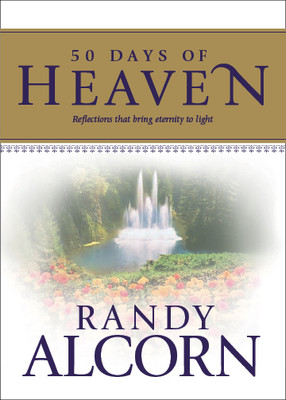Question from a reader:
In chapter 5 of your book Heaven, you write: “These passages make it clear that there is no such thing as soul-sleep….” Agreed. There is not. So why raise the subject of soul-sleep when it has absolutely nothing to do with the biblical teaching about “falling asleep in Christ”? The Bible refers to “falling asleep in Christ” on 17 different occasions. To what purpose does the Bible do this since it has nothing to do with soul-sleep? What are the Scriptures trying to teach us?
You then continue to inform your readers that: “The phrase ‘fallen asleep’ … is a euphemism for death describing the body’s outward appearance.”
I don’t understand. In Luke 8:52-53 we read the following:
And all were weeping and mourning for her, but he said, “Do not weep, for she is not dead but sleeping.” And they laughed at him, knowing that she was dead.
When Jesus told the crowd concerning the daughter of Jairus who had died: “Do not weep, for she is not dead but sleeping”, are you saying Jesus was only referring to her outward appearance?She only “appeared” to be dead but in “reality” she was not dead? It would therefore logically follow that she was alive. So what was this affair with the daughter of Jairus all about?
Are you saying, Randy, that if one “euphemizes away” the “appearance” of death as it relates to this twelve-year-old girl, Jesus was actually saying: “She is not dead; she only appears to be dead. At least to you people”?
I would highly value your insight as I seek to understand why this passage is interpreted as a euphemism for death and not, say, as a theological, declarative statement.
Answer from Doreen Button, EPM staff:
Thanks for your questions.
Death is final. At least in our minds, and certainly in the minds of the mourners weeping at Jairus’ home. To Jesus, who mightily demonstrated His power over death on many occasions, including His own resurrection, death is no obstacle at all. And given that we will all one day be resurrected “some to everlasting life, others to shame and everlasting contempt” (Daniel 12:2) and our bodies will join the souls who, when absent from the body are in the presence of Yahweh (2 Corinthians 5:8), “sleep” seems like a valid euphemism.
Regarding the specific scenario in Luke 8:52-53—which took place before Jesus “set His face toward Jerusalem” (Luke 9:51)—Jairus’s daughter appeared to be dead because she was dead. Yet Jesus—fully God—sees beyond this finite moment in time in which we are sequestered. He alone is capable of “waking” her, as He did Lazarus and others. The passage is not a euphemism for death; the word “sleep” is the euphemism.
Jesus was also embodied in a culture which used “sleep” as a euphemism for death (unlike ours, which does not). Jesus spoke the language of His people. Paul, in 1 Corinthians 15:51 also uses “sleep” as a euphemism for death even though He was the one who wrote 2 Corinthians 5:8 “to be absent from the body is to be present with the Lord.”
I take all this to mean that our bodies “sleep” in death and our souls depart, fully awake and alive, to be with the One to whom we belong until the Resurrection when we’ll be whole again.
Here is Randy’s response about his intent:
“These passages make it clear that there is no such thing as soul-sleep….” Agreed. There is not. “So why raise the subject of soul-sleep when it has absolutely nothing to do with the biblical teaching about ‘falling asleep in Christ’”?
Randy: I raised the subject precisely because of the face value meaning of the word “sleep.” Many take the Bible literally which is often but not always the right thing to do. This is not literal sleep, and that's exactly why people need to have that pointed out to them.
Soul sleep is an actual teaching of a number of traditions, including Seventh-day Adventism. As a writer concerned about conveying biblical truths to the reader, I thought it was necessary to clarify that sleep here does not mean soul sleep. Hence the mention of soul sleep.
Had I not mentioned it, those who believe in it would continue in their belief and those unfamiliar with the biblical viewpoint might have entertained a literal, and therefore false, belief.
“Are you saying, Randy, that if one ‘euphemizes away’ the ‘appearance’ of death as it relates to this twelve-year-old girl, Jesus was actually saying: “She is not dead she only appears to be dead. At least to you people”’?
Randy: The passage affirms that she was in fact dead. Euphemisms do not deny the reality that they are conveying in a softer tone. If someone uses the old fashioned expression that a woman is "in a family way" they are not denying pregnancy, they are affirming it.
Here are a couple of links you might find of interest:
Sleep as a Euphemism for Death (you’ll have to weed through some rabbit trails, but he has some good insights)
Is It True the Bible Teaches that after Death We Will Enter a ‘Soul Sleep’?
Keep digging, and keep bringing Him your questions.






